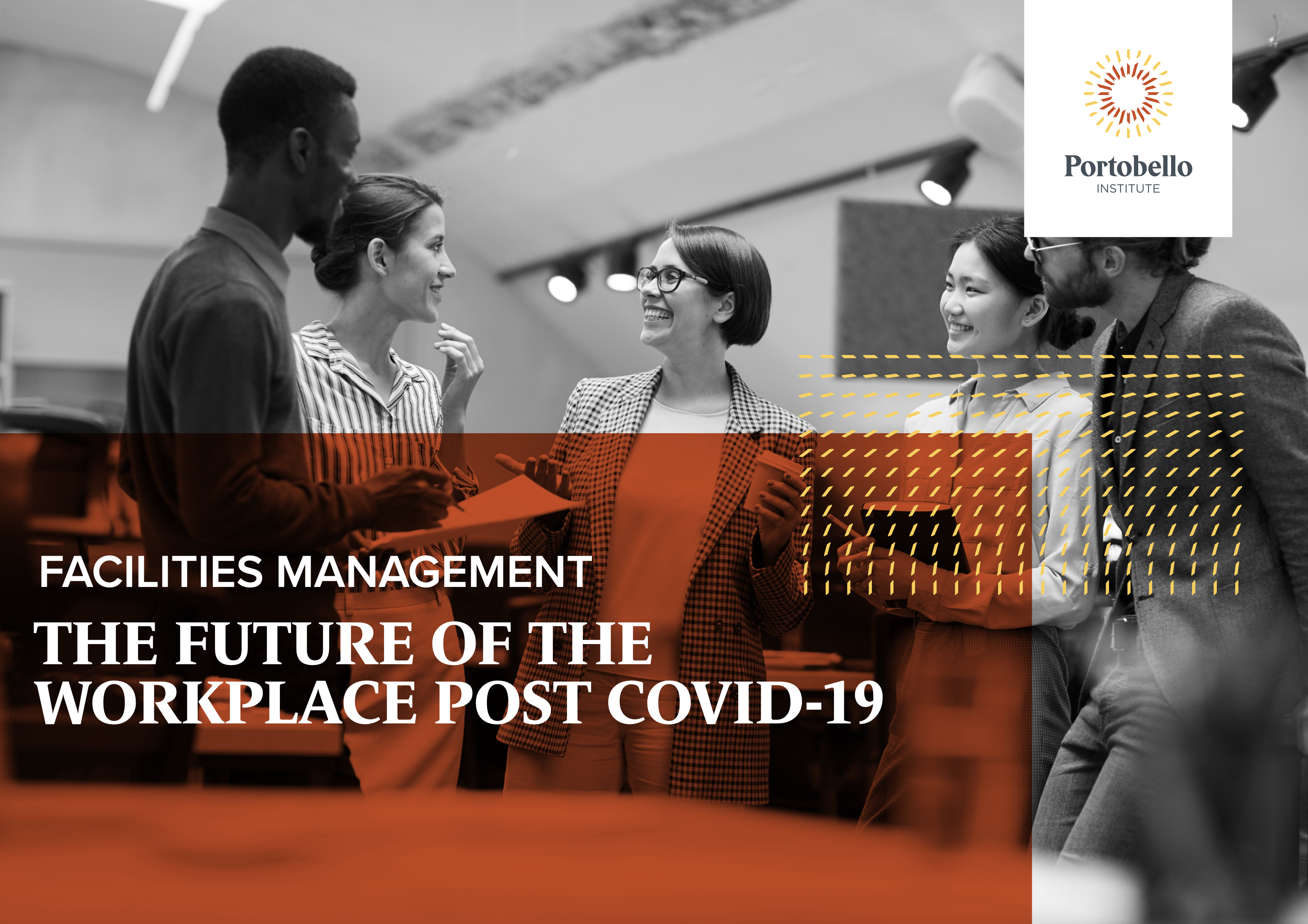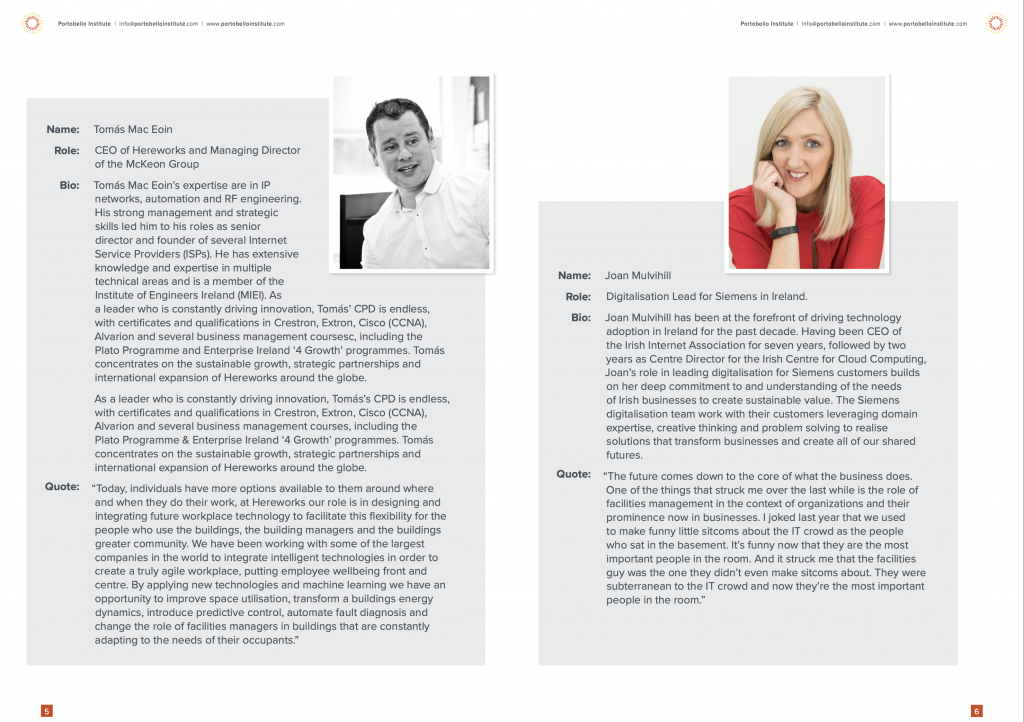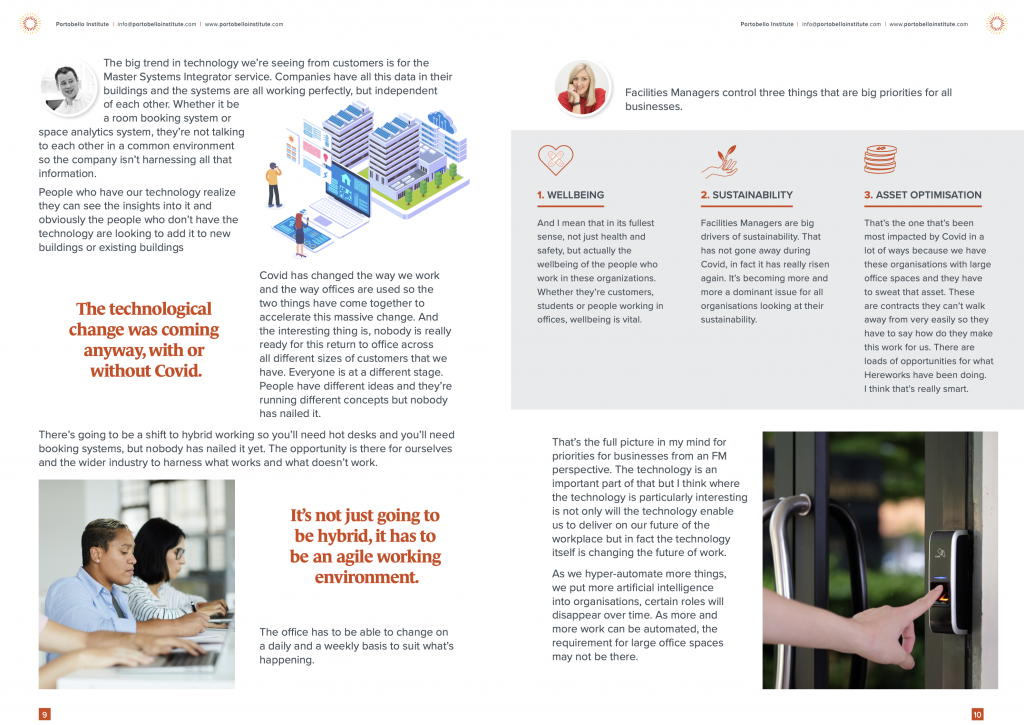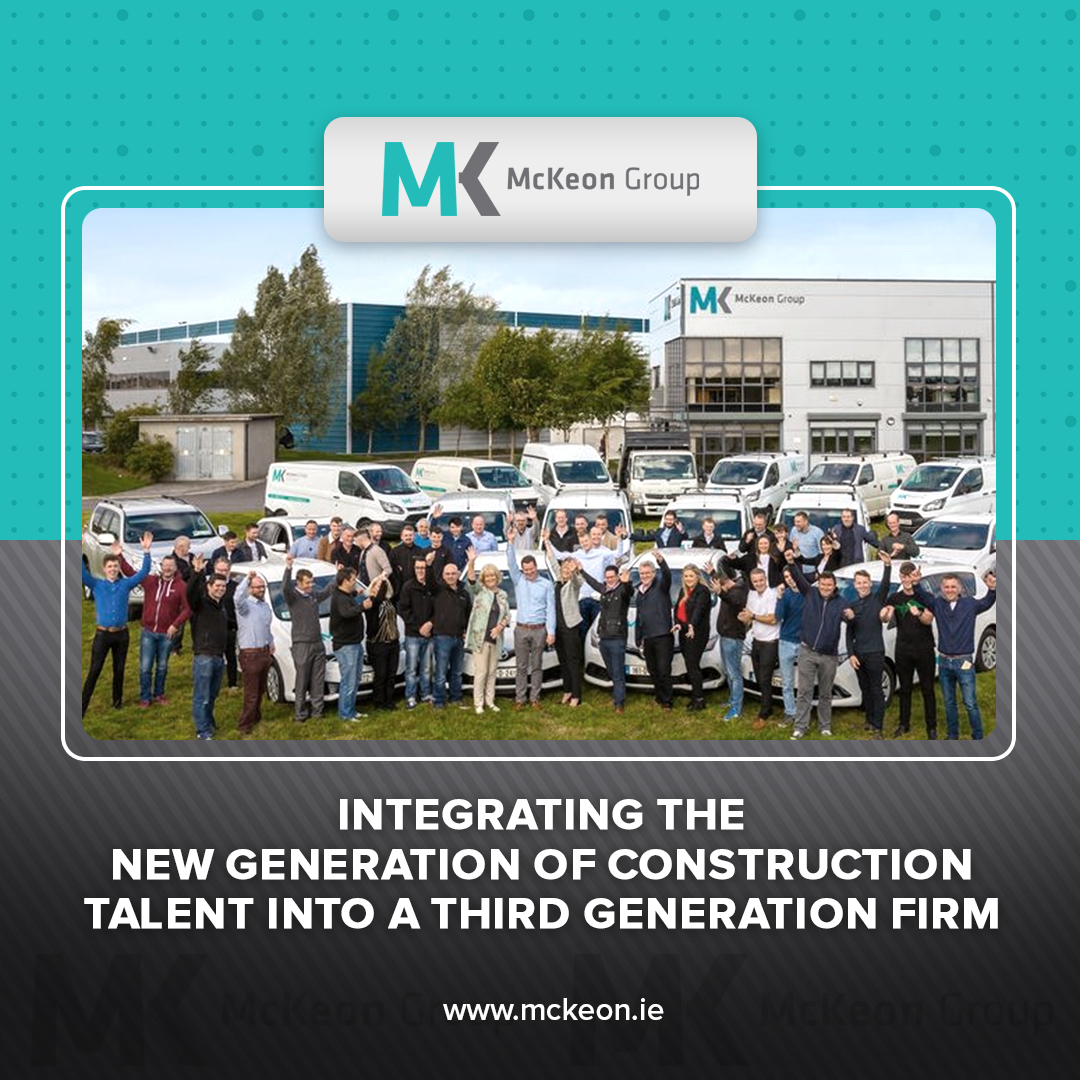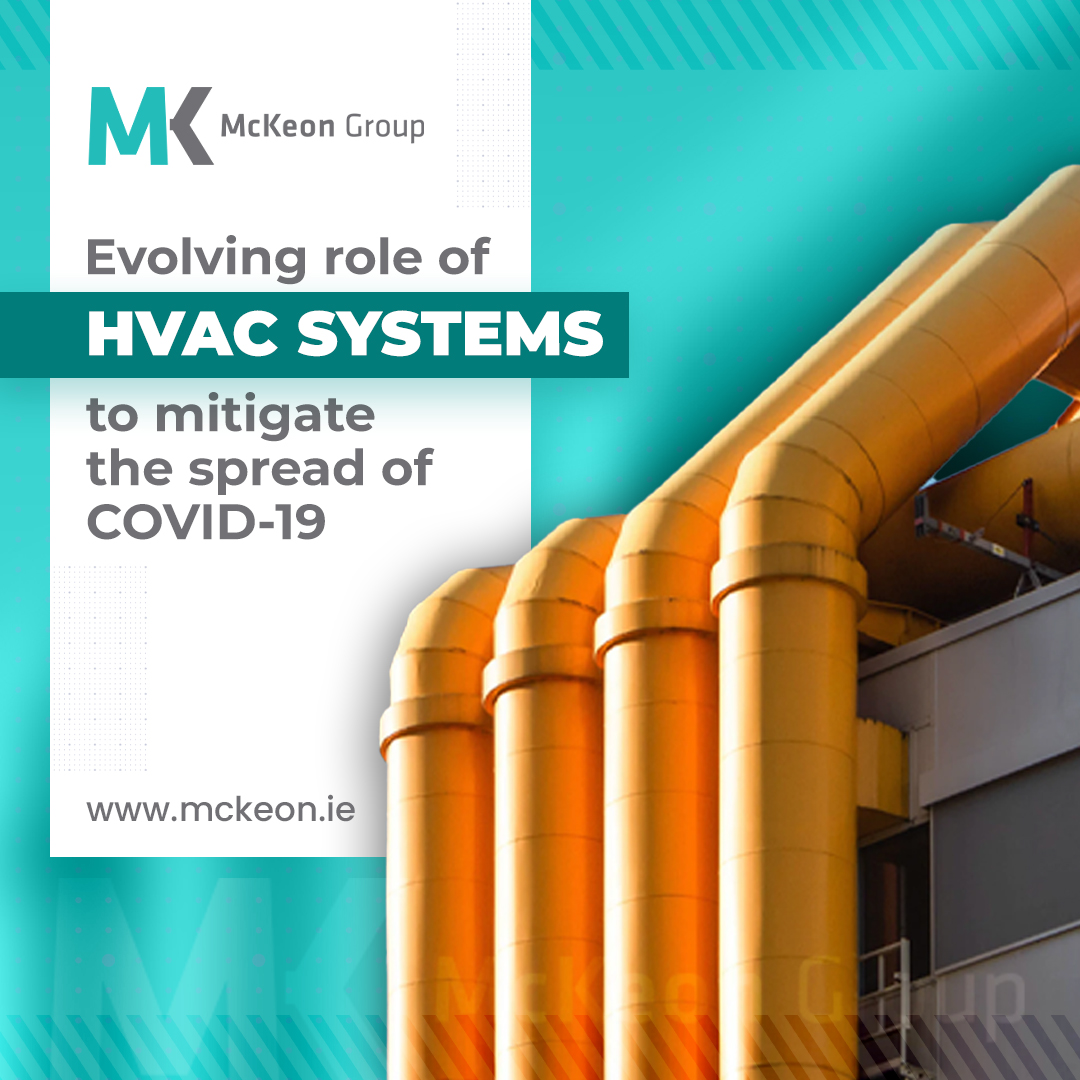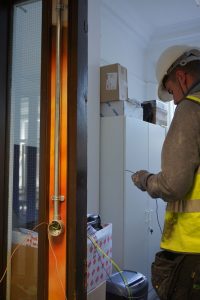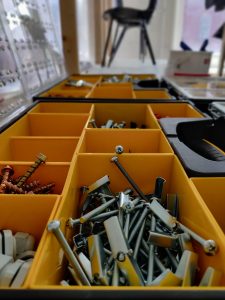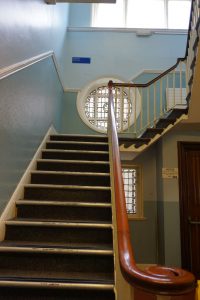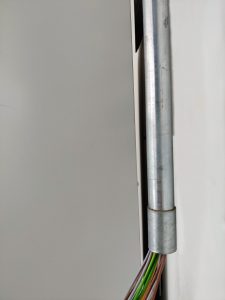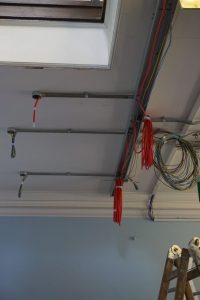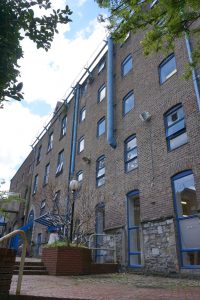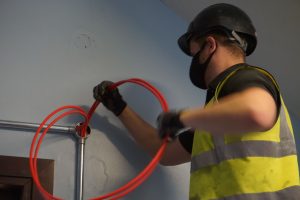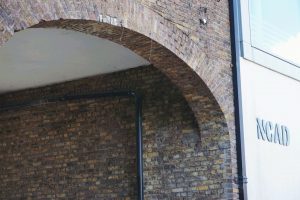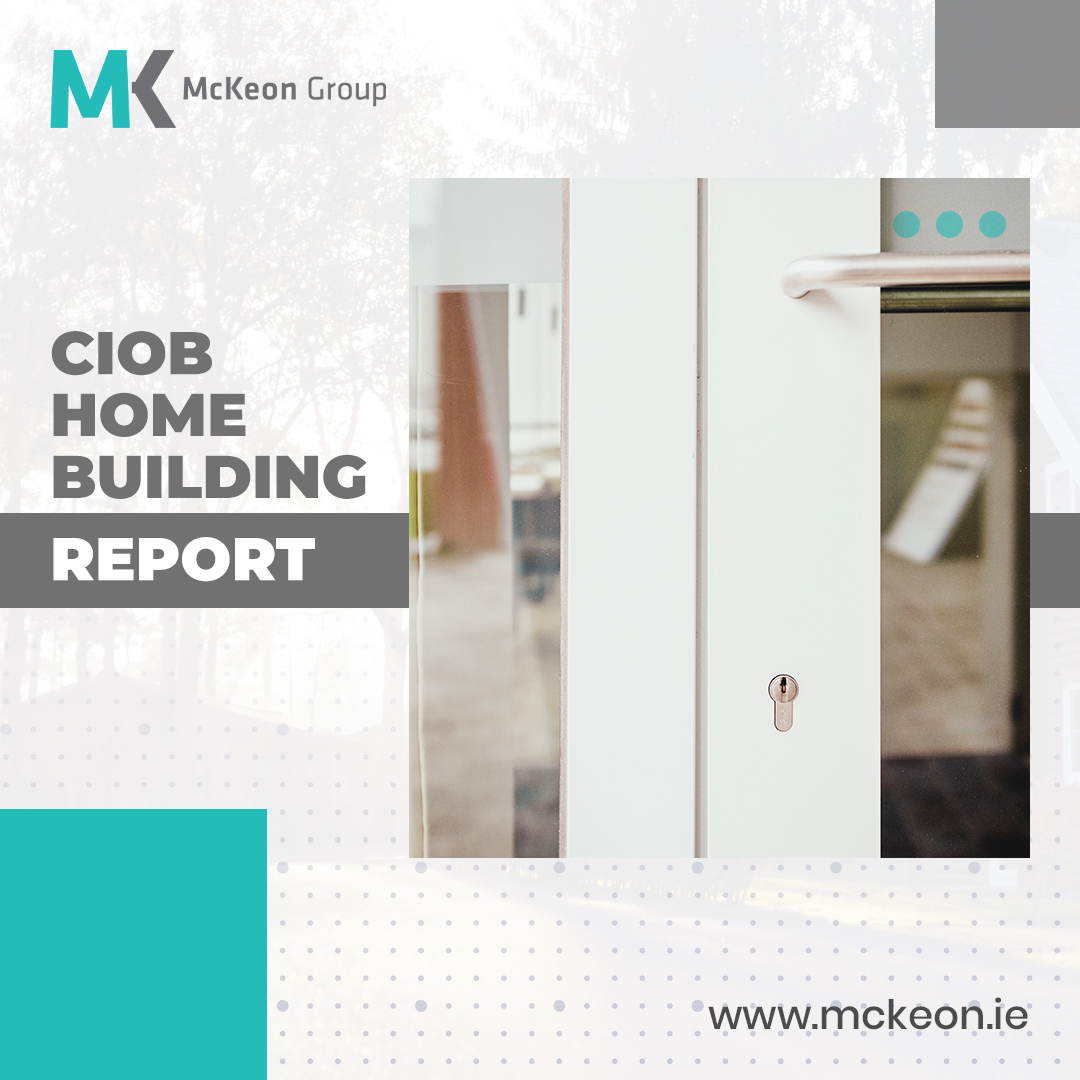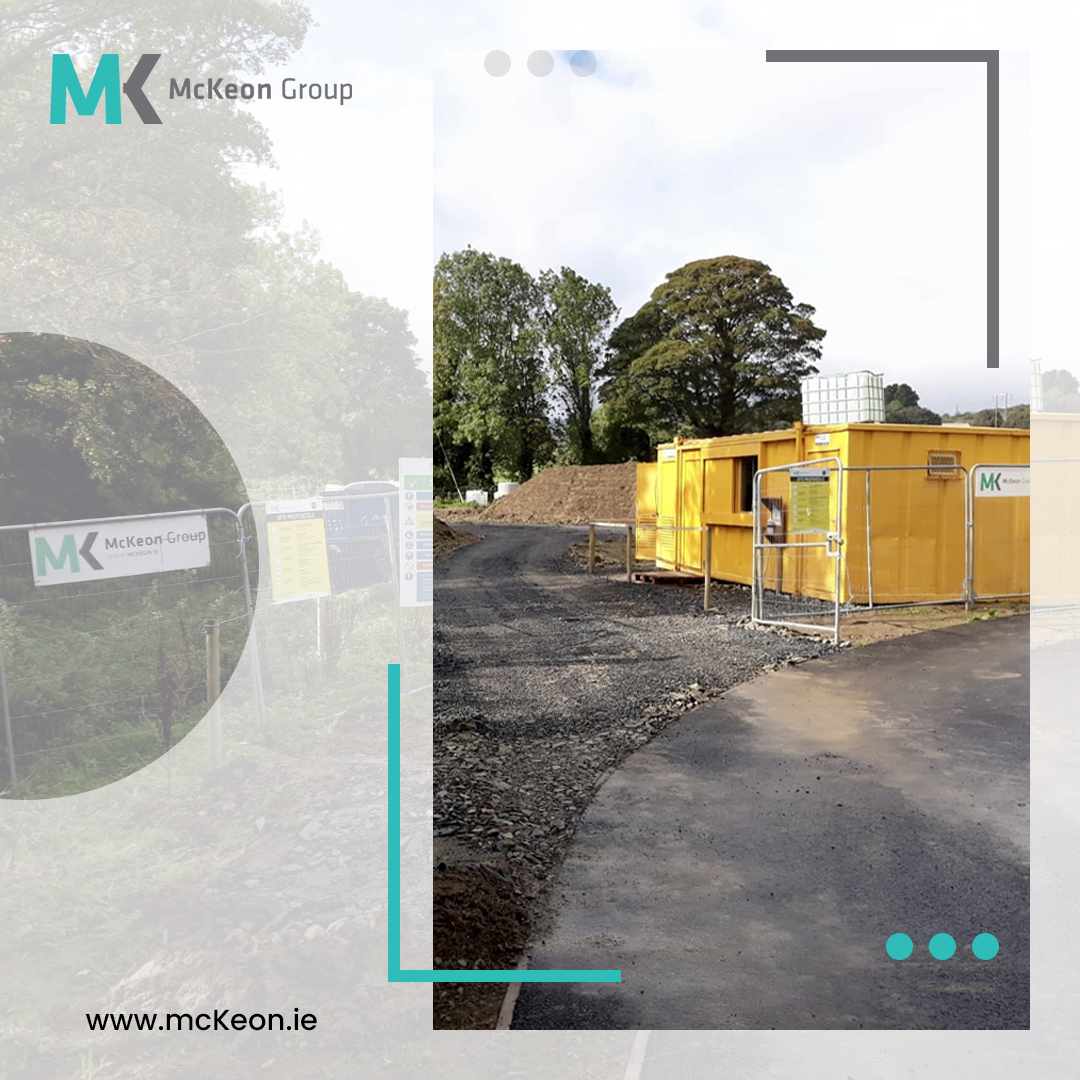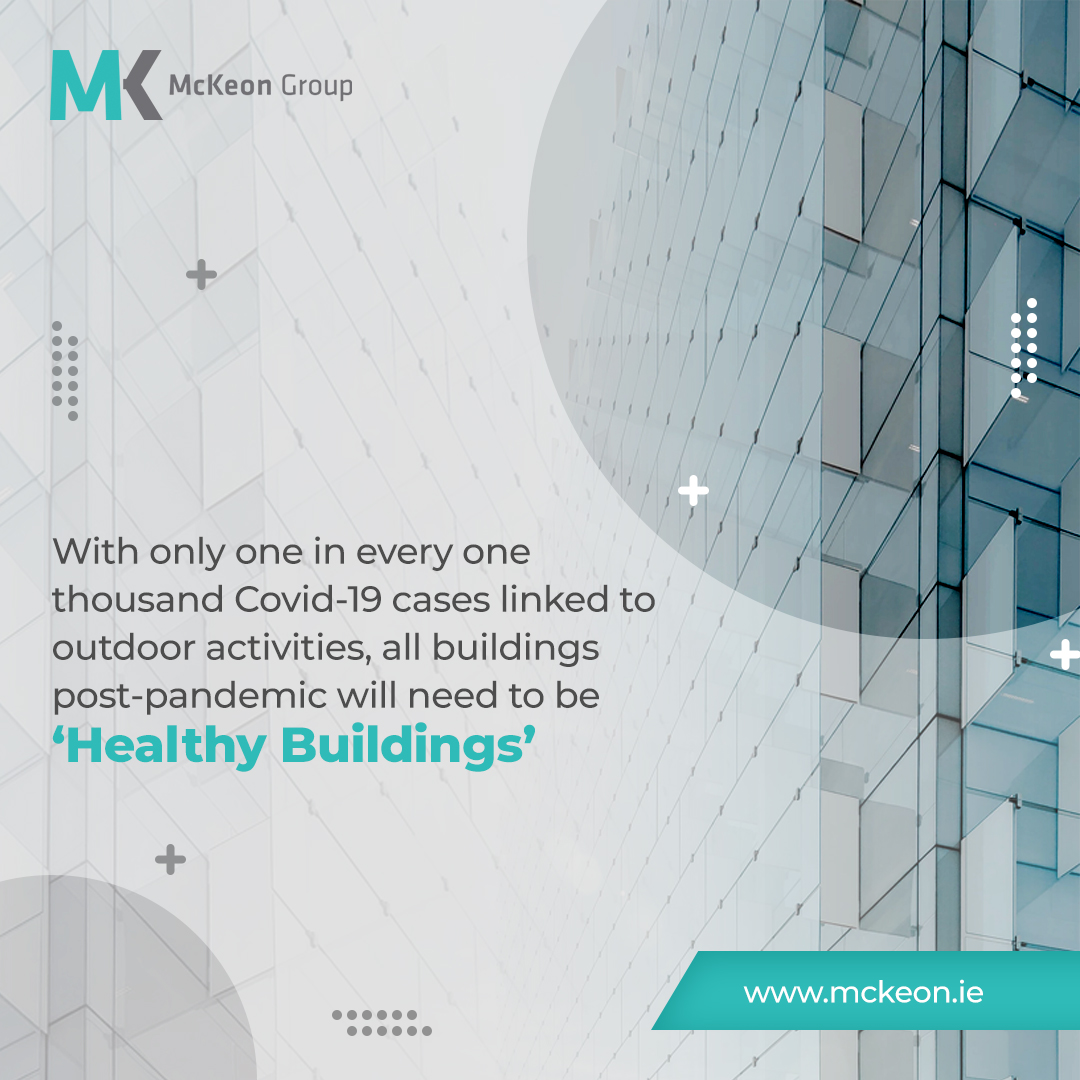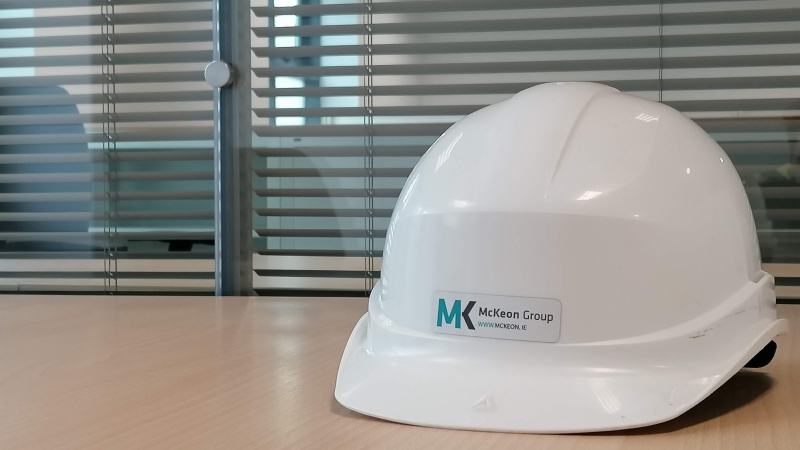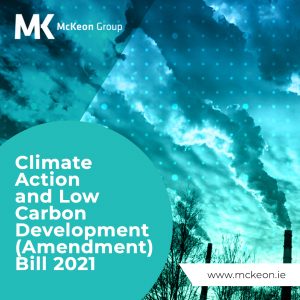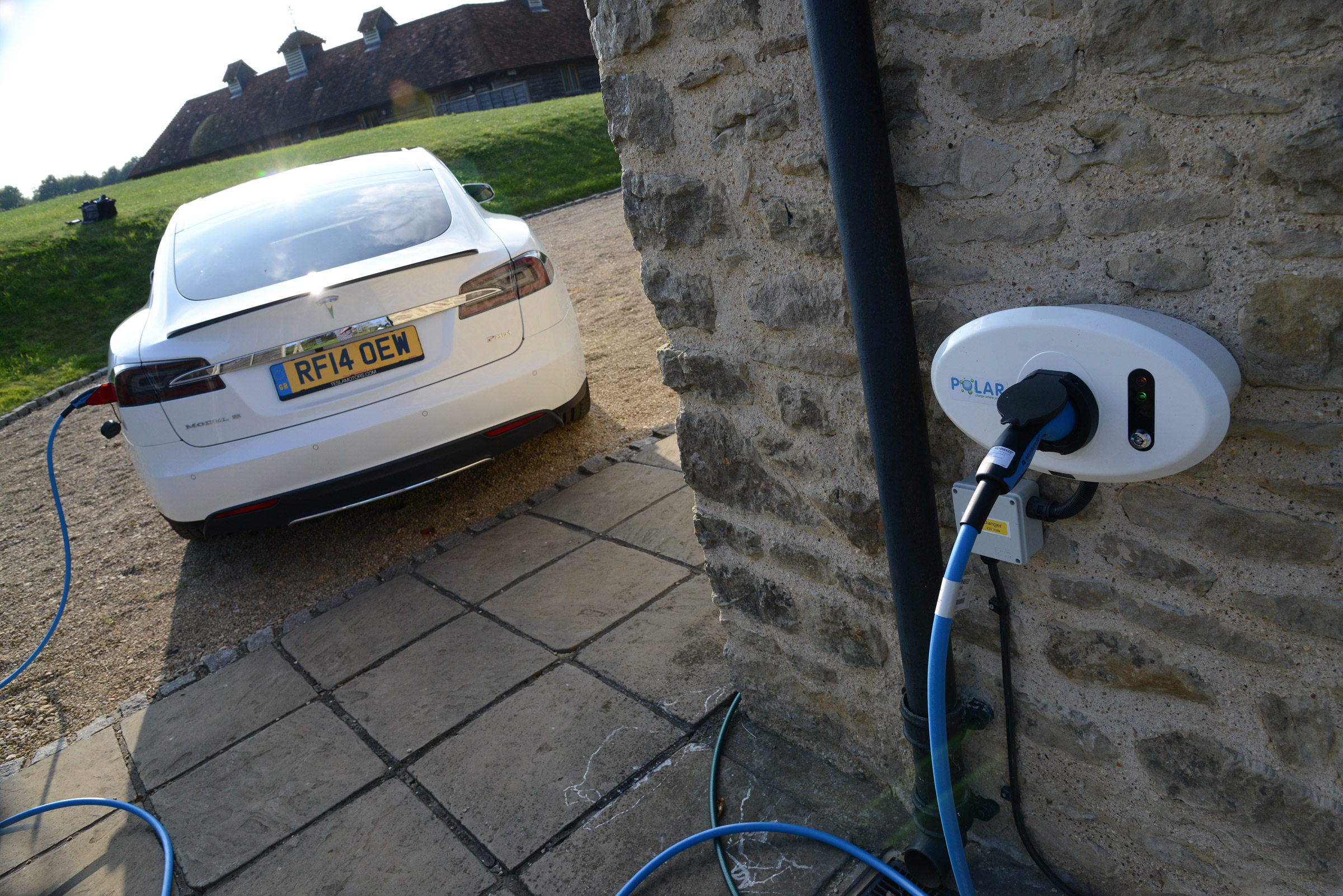Earlier today, McKeon Group CEO Tomás Mac Eoin joined a panel of leaders within the facilities management sector to discuss the Future of the Workplace Post Covid-19. The discussion was hosted by Bernard Mac Oscair and Portobello Institute.
The Institute has thoughtfully put together an ebook summarising some of the many insights exchanged between the expert panel, which also included Joan Mulvihill, Digitalisation Lead for Siemens in Ireland and Áine Mulcahy, Managing Director for OCS Ireland and Aviation UK. This ebook is available for download here: https://mckeon.ie/wp-content/uploads/2021/06/The-Future-of-the-Workplace-Post-Covid-19-Post-Webinar-eBook.pdf
Highlights include a number of future-looking, insightful quotes from the panelists, as follows:
Bernard Mac Oscair
“It’s really important for the facilities management industry that we start looking at what our options are as we go forward. What does that really mean in terms of contracts, in terms of technology and in terms of real delivery of service on the ground?”
Joan Mulvihill
“The future comes down to the core of what the business does. One of the things that struck me over the last while is the role of facilities management in the context of organizations and their prominence now in businesses. I joked last year that we used to make funny little sitcoms about the IT crowd as the people who sat in the basement. It’s funny now that they are the most important people in the room. And it struck me that the facilities guy was the one they didn’t even make sitcoms about. They were subterranean to the IT crowd and now they’re the most important people in the room.”
Áine Mulcahy
“A blended workplace is the most talked about work model of the past number of months. For many companies, the jury is still out on whether to adopt a hybrid work environment or keep the traditional five-day, on-site workweek. Employers cannot afford to stick with the status quo and we must now reimagine our working environment.”
Tomás Mac Eoin
“Today, individuals have more options available to them around where and when they do their work, at Hereworks our role is in designing and integrating future workplace technology to facilitate this flexibility for the people who use the buildings, the building managers and the buildings greater community. We have been working with some of the largest companies in the world to integrate intelligent technologies in order to create a truly agile workplace, putting employee wellbeing front and centre. By applying new technologies and machine learning we have an opportunity to improve space utilisation, transform a buildings energy dynamics, introduce predictive control, automate fault diagnosis and change the role of facilities managers in buildings that are constantly adapting to the needs of their occupants.”
Tomás also discussed some of the exciting work currently being undertaken by the team at Hereworks, part of the McKeon Group, and particularly the emerging role of Master Systems Integrator:
“The big trend in technology we’re seeing from customers is for the Master Systems Integrator service. Companies have all this data in their buildings and the systems are all working perfectly, but independent of each other. Whether it be a room booking system or space analytics system, they’re not talking to each other in a common environment so the company isn’t harnessing all that information. People who have our technology realize they can see the insights into it and obviously the people who don’t have the technology are looking to add it to new buildings or existing buildings…” Learn more at https://hereworks.ie
About McKeon Group
Established in 1950 and ISO certified for more than two decades, McKeon Group offers expert construction, fitout and building services. The family-run Group delivers projects, services and maintenance across a range of sectors for State, local authority, FDI and private clients. For more information, contact: www.mckeon.ie


